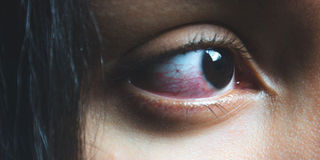Glaucoma can cause blindness

What you need to know:
Eye care. How often do you go for eye check-ups? Could you be suffering from glaucoma? Are you aware it could lead to blindness? Beatrice Nakibuuka shares details of this eye condition.
Rachael Asiimwe, 34, worked in an office for more than 10 years. Her computer did not have an antiglare and it was too bright. Years later, she started to feel pain in her eyes accompanied by a headache.
She first took pain killers which she thought would relieve the pain in vain. “Whenever my eyes turned red, I felt a lot of pain. I went to see a general practitioner who recommended that I see an optician.”
After several tests, Asiimwe was diagnosed with glaucoma. According to Joseph Masajjage, an optometrist at Boss Optical Centre, Asiimwe had open-angle glaucoma, one of the commonest types of glaucoma which is also hereditary. Other types include close-angle, normal tension, pigmentation glaucoma and glaucoma, among children.
According to Masajjage, glaucoma is an eye condition that causes damage of the optic nerve due to excessive pressure in the eye, leading to gradual sight loss. When one has pressure in the eye, it feels like a stabbing, burning, or stinging pain inside the eye.
He says: “The disease can occur at any age but it is more pronounced among aging adults. Since it has no warning signs, many people are diagnosed with this condition when it is in its advanced stages, when the damage is so adverse and irreversible. This is why everyone must have regular eye examination.”
Symptoms
There are varying signs and symptoms of glaucoma depending on the type, stage and level of the condition such as pain in the eye, red eyes, halos around lights, blurred vision, endless headaches and blind spots in both eyes.
If left untreated, damage to the optic nerve leads to a gradual deterioration of the nerve, creating blind spots in some parts of the eye which is likely to lead to total blindness.
The infants
Causes of blindness among infants according to Dr Grace Ssali, a consultant ophthalmologist at Mulago Hospital, are majorly due to brain damage that occurs after a high fever accompanied by convulsions.
Here, the eyes are normal but the visual processing areas of the brain that interpret incoming visual information, is abnormal.
She says: “The neurological visual impairment is caused by anything that affects the visual pathways in the brain such as persistent inherited brain infections, traumatic and anoxic brain injury.”
Some children are born with glaucoma and cataracts. But if they are not detected early and treated, they may lead to blindness among infants. Early diagnosis and treatment can restore the child’s sight.
Prevention
Get regular comprehensive eye examinations to help you detect glaucoma when it is still in its early stages. The earlier the diagnosis, the easier it is to treat. The older you grow, the higher the risk of catching this eye disease. When you clock 40 years, you should frequent your eye centre to avert sight loss.
Masajjage warns: “If you have a family history of glaucoma, you are at a risk of catching any eye disorders that are likely to cause blindness. Your optometrist can recommend a regular schedule for you depending on what your problem is.”
Wear eye protection when using high power tools. If your optometrist prescribes spects for you, use them as prescribed, even when you do not have any symptoms.
Regular moderate exercises can significantly reduce eye pressure, thereby preventing glaucoma.




